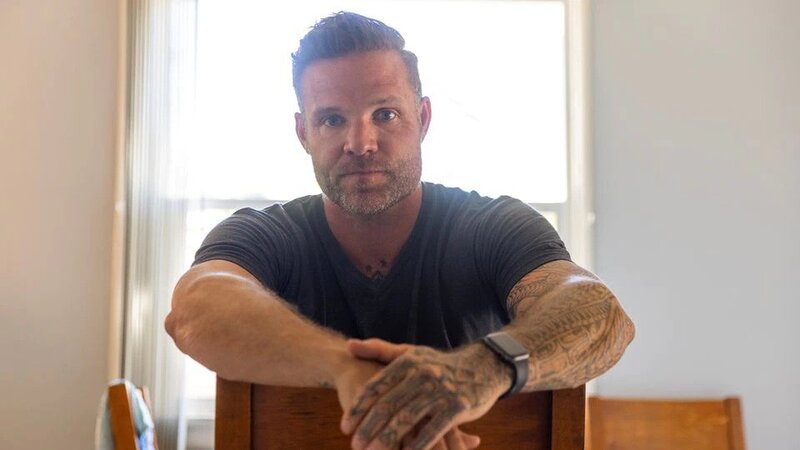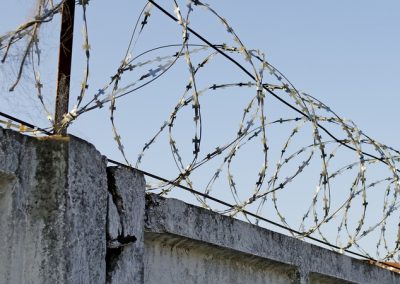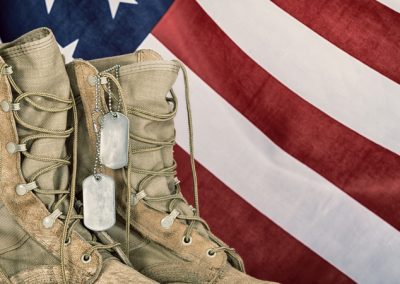Jason Lilley was a special operations forces Marine Raider who fought in multiple battles in Iraq and Afghanistan during America’s longest war.
As Lilley, 41, reflects on President Joe Biden’s decision to end America’s military mission in Afghanistan on Aug. 31, he expresses love for his country, but disgust at its politicians and dismay at the blood and money squandered. Comrades were killed and maimed in wars he says were unwinnable, making him rethink his country and his life.
“A hundred percent we lost the war,” Lilley said. “The whole point was to get rid of the Taliban and we didn’t do that. The Taliban will take over.”
Biden says that the Afghan people must decide their own future and that America should not have to sacrifice another generation in an unwinnable war.
Al Qaeda’s 9/11 attacks on America triggered a nearly 20-year conflict that led to more than 3,500 U.S. and allied military deaths, the deaths of more than 47,000 Afghan civilians, the killing of at least 66,000 Afghan troops, and over 2.7 million Afghans fleeing the county, according to the nonpartisan Costs of War project at Brown University.
“Was it worth it? It’s a big ass question,” said Lilley, who was on the front lines of America’s Global War on Terror in Iraq and Afghanistan for almost 16 years.
He said he deployed believing troops were there to defeat the enemy, stimulate the economy and uplift Afghanistan as a whole. They failed, he said.
“I don’t think one life was worth it on both sides,” Lilley said as he described his service and his perspective in an interview at his home in Garden Grove, southeast of Los Angeles.
……………………………….
Part of Lilley’s support network is Jordan Laird, 34, a former Marine scout sniper who described completing combat tours in Iraq and Afghanistan, which Laird and others called “Vietstan.”
“You have a deeper understanding of the plight of the Vietnam vets who came home with lost limbs and being completely and utterly tossed to one side,” said Laird, who now campaigns to improve veteran care.
He served in Sangin Valley in Helmand Province, one of the most fiercely contested parts of Afghanistan, from October 2010 to April 2011. In his first three months, he said, 25 members of Laird’s unit were killed in action and more than 200 were wounded. His best friend bled to death in his arms.
While in Afghanistan, Lilley said he grew to understand why historians have called it the “graveyard of empires.”
Britain invaded Afghanistan twice in the 19th century and suffered one of its worst military defeats there in 1842. The Soviet Union occupied Afghanistan from 1979 to 1989, leaving after 15,000 of its troops were killed and tens of thousands were wounded.
Lilley says he was particularly disillusioned by the U.S. military rules of engagement in Afghanistan. He and other units were not allowed to make night raids on the Taliban, for example.
“Marines aren’t designed to kiss babies and pass out flyers. We are there to eradicate. We can’t do both. So we tried and failed,” Lilley said.
………………………………..
A turning point in Lilley’s thinking came when a Taliban prisoner told him the Taliban would wait out the United States and knew Americans would lose faith in the war, just as the Soviets did.
“That was 2009. Here we are in 2021, and he was right,” Lilley said. “Why did we lose guys? Why?”
Back from the battlefield, Lilley, physically fit and heavily tattooed, said he could not even look at the U.S. flag for several years because he felt so angry that his country had sent him and his colleagues to an unwinnable war. He says he has seen several mental health counselors, but his greatest support network is fellow veterans.
……………………………….
“We should avoid war at all costs,” Lilley said. “Don’t rush into the racket of war, into the machine of making money, contracts. A lot of people made a lot of money off of this.”
He said it took him years to let go of his anger.
“I mean I knew what I was getting into, I mean I grew up on ‘Rambo.’ I wanted to honor my family in the sense my grandfather fought in World War Two, I wanted to go down that same route and do the selfless thing, but it turns into reality quickly.”
Another of Lilley’s Iraq and Afghanistan veteran buddies is Tristan Wimmer, also a Marine scout sniper. Wimmer’s brother Kiernan, also a Marine veteran, died by suicide in 2015 after receiving a traumatic brain injury in Iraq before deploying to Afghanistan.
……………………………….
Wimmer said of Afghanistan: “By any metric you choose to measure it, it was a fruitless effort. Getting rid of al Qaeda or the Taliban – we didn’t succeed. Increased peace and prosperity for the Afghan people? We didn’t succeed.”
“In the process we sacrificed a lot of wealth, we sacrificed a lot of time, we sacrificed a lot of lives, not just American lives, but coalition lives and especially Afghan lives, to walk away essentially having accomplished not a lot. That’s a really hard thing to stomach.”
Read the rest of this article at Reuters





